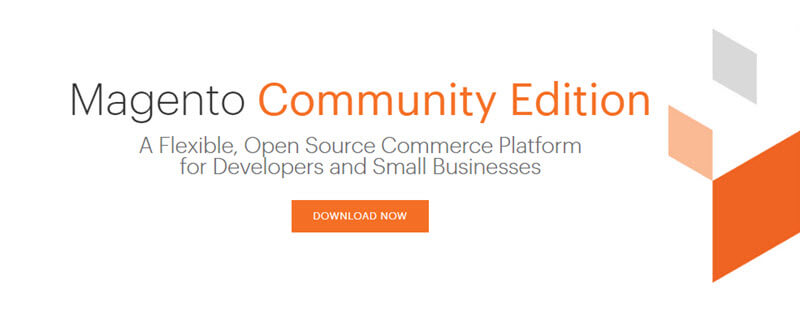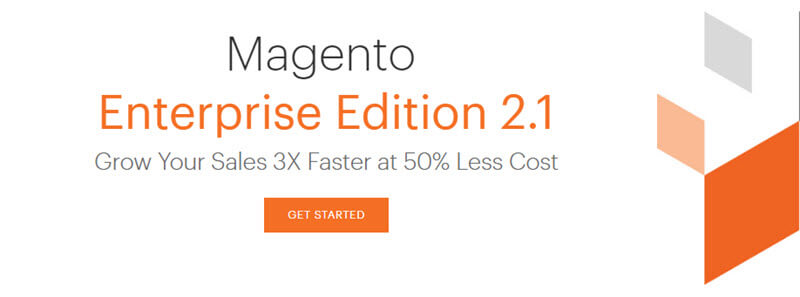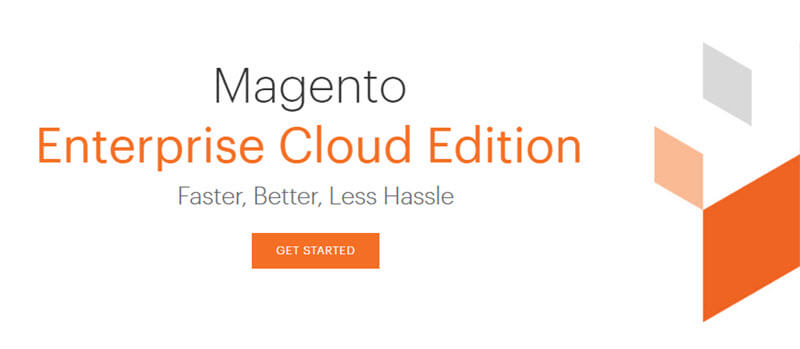Which should you choose: Magento 2 Enterprise, Open Source, or the Cloud edition?

You probably already know Magento 1 was retired in favor of Magento 2. Now Magento customers have even more choice and flexibility in deciding how they want to create and manage an online store.

From Magento 2 Release
Across all editions, Magento 2 offers some really great features, including:
- Robust admin management capabilities
- Fast and easy checkout
- Wonderful SEO
- Mobile-friendliness
- Customization
- and more!
For more details on the Magento eCommerce platform in general, check out our comparisons to other popular ecommerce platforms like Shopify and Zen Cart.
With the updates of Magento 2, any of the three editions are suitable for creating a successful, flexible online store. They share similarities, but come with some key differences. So if you’ve already chosen Magento, congrats!
Next, you’ll need to choose which edition you want to use. Luckily, this article will provide information that will offer perspective on this decision.
April 2025 Offer – For a Limited Time Only:
Get All Access Pass Package for Magento 2 for 25% off! Don’t miss out!
Basic Differences Between Magento 2 Editions
Magento Open Source Edition

Magento 2 Open Source is the free version great for small businesses or those that want to build a store from the ground up with help from a developer.
There are many upgrades between Magento 1 Community’s edition and Magento 2’s Open Source. Magento 2 Open Source comes with a more intuitive admin and shopper experience, performance enhancement, and streamlined checkout.
Magento Enterprise Edition

Magento 2 Enterprise Edition is the best fit with the specific needs of medium and large size businesses. It offers flexibility while shortening the time to market. It comes with exclusive features not found in the free Open Source edition, including extensive management tools and powerful performance and scalability.
Magento Cloud Edition

Released in April, this edition is the new software-as-a-service (SAAS) option from Magento. It’s more closely aligned with big players in the eCommerce market like Shopify. The Magento Cloud Edition eliminates the need for self-hosting. Your Magento store is hosted entirely in the cloud.
With this edition, admins don’t need to worry about server performance or security. The benefit of this is that it’s able to provide an optimized experience at all times, regardless of whether it’s a regular Friday or Black Friday. It’s also easier to set up and start running.
7 Important Considerations for Deciding Between Magento 2 Editions
#1. Price
First and foremost, it’s important to consider the price of each edition.
- Open Source Edition- Cost of hosting
- Enterprise Edition- Quoted, starts at around $22,000 a year
- Cloud Edition- Quoted, priced higher than Enterprise
For a small business, Magento 2 Open Source is the most affordable.
Based on cost alone, Enterprise and Cloud are best for medium to large sized businesses. The exact price for both enterprise editions will depend on store revenue and the amount of support required.
#2. Hosting
One of the most obvious differences between the editions is that Magento Open Source and Enterprise require finding and paying for hosting. You also need to ensure this hosting fits your performance needs.
Magento Cloud comes with hosting. If you don’t want to mess with hosting, the Cloud edition might be the best solution for your business.
#3. Shop Size
Out of the box, Magento Enterprise and Enterprise Cloud editions are best suited for stores with more products and traffic, which correspond with higher performance needs.
Enterprise editions come with features specifically designed to increase performance, including order archiving, deferred stock updates, and separate master databases to support Checkout, Order Management, and Product Data.
#4. Out-of-the-Box Functionality

Magento 2 scalability stats
Magento 2 Enterprise comes with many convenient built-in features like
- Reward points
- Product wishlist
- Gift options
- Add product by SKU
- Additional payment gateways
- Google Tag Manager
- Targeted promotions
- Software development kit for custom mobile shopping apps
- and more.

Creating a custom app with Magento 2 Enterprise
These features can provide a better admin and customer experience right out of the box.
Magento Cloud comes with a full Magento Enterprise license, so you get the same built in features.
Note: Many of these features can be added and customized by adding third-party extensions to Magento 2 Community edition. In addition, businesses can choose to add even more features to Magento Enterprise through extensions.
#5. Admin Capabilities
Another important consideration when choosing between the different Magento 2 editions is admin management options.
Admin management features exclusive to Magento Enterprise and Magento Cloud include advanced permissions, efficient return management, and easy system reporting. It also comes with backend management abilities specific to large-scale product inventory updates. It easily supports many team members working at the same time.
#6. Customer Experience

Magento 2 Enterprise also has features that are designed to increase customer loyalty. Store admins can create custom loyalty rewards programs. Refund orders for store credit, allow customers to create multiple wish lists, or create a custom gift registry for weddings, baby showers, etc. Admins can even create a private flash sale website with a sale countdown timer.
These are advanced customer experience options that may not be necessary for every eCommerce business, but can be useful for certain stores.
#7. Marketing and Promotions
Lastly, Magento 2 Enterprise has advanced marketing and promotion options that are exclusive to this edition and the Cloud version. These can ramp up a store’s marketing strategy.
These exclusive features include adding additional customer attributes such as gender, date of birth, etc., to create special customer segments for marketing campaigns. Promotions can target specific customer groups by order history, shopping cart contents, and wish lists. There’s even the option to target unknown site visitors based on products viewed!

Customized marketing with rewards points
The Take Away
It might seem easier to look at what platform your favorite online store uses and go with that. However, it’s important to weigh the pros and cons specific to your business needs. The best Magento 2 edition for your business won’t necessarily be the same as another store uses.
For example, if you want to make a small online store with the ability to add new features over time, Magento Open Source will work well. If you want to create a huge online store with tons of products and many advanced features built-in, a custom enterprise solution may be best.
Whichever Magento 2 edition you choose, know that they all share the key features that make Magento a great eCommerce platform: scalability, performance, and customization.


